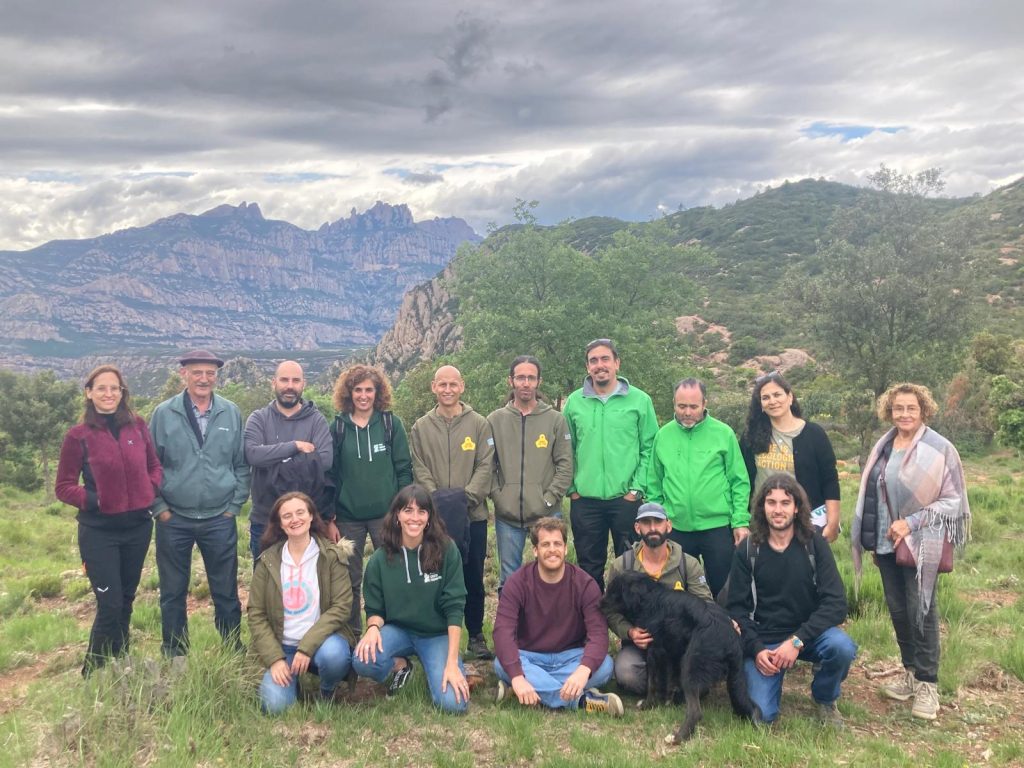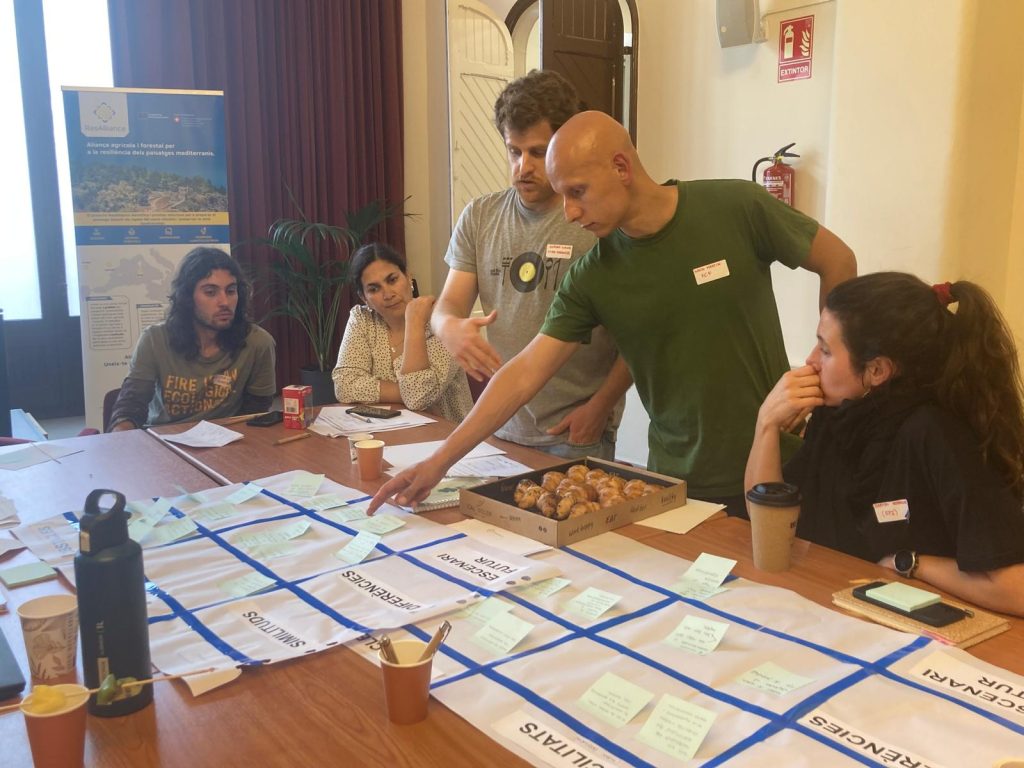
Climate change and mediterranean landscape
Faced with the growing effects of climate change, our landscapes and environments are increasingly vulnerable. For this reason, building resilient landscapes is key to safeguarding ecosystems and the services they provide to communities. It is essential to improve the adaptation and resilience of the Mediterranean landscape and to understand how it can contribute to mitigating the risks of wildfires and drought.
Knowledge exchange as a solution: the workshop
In this context, the participatory workshop “Solutions to Face Climate Challenges in Baix Llobregat, Penedès, and Anoia,” within the framework of the ResAlliance project, took place on May 14 and 15 at the headquarters of the Regional Council of Alt Penedès (Vilafranca del Penedès, Barcelona). The aim was to exchange good practices carried out in Sardinia (Italy), Regiao Norte (Portugal), and Catalonia (regions of Baix Llobregat, Penedès, and Anoia) for better landscape resilience.
This is the second workshop of ResAlliance’s Catalan LandLab, following the first workshop last October, where actors from the three Catalan regions identified challenges and needs, they felt needed to be addressed. The results were shared with the other regional LandLabs of the project, and now, actors from the Catalan, Italian, and Portuguese regions have gathered, acknowledging that they shared similar problems and could learn from each other.

Adapt the solutions to the regional context
“The overall objective of ResAlliance is to provide solutions to the agroforestry sector, which is suffering from climate change and rural abandonment. After the first workshop, actors from Portugal, Italy, and Catalonia agreed on the priorities of the challenges in our regions. For example, the regions of Sardinia and Catalonia showed interest in sharing good practices regarding ecosystem services, and actors in Portugal showed interest in learning more about silvopasture practices for fire risk management,” says David Martín, project technician of the Pau Costa Foundation, Catalan LandLab ambassador, and coordinator of the project’s LandLabs.
The first day of the workshop consisted of a series of presentations on fire prevention and certification of ecosystem services in Sardinia by the Fo.Re.S.T.A.S. agency ; on grazing as a forest management tool in the framework of the “Life Maronesa” and “Fire Flocks” projects; and on the “Penedès Drought Observatory” pilot project, to monitor rainfall and the availability of water in the soil. After the presentations, participants worked in groups, led by experts in wildfires, ecosystem services and silvopastures, to share good practices. There was also a working group focused on the wine sector and its role in landscape management.
The second day of the workshop was a field trip with visits to different parts of Alt Penedès region to see the planning and actions that are being implemented to create a resilient agroforestry landscape. Specifically, the Raïm +500 project of the “Farmers’ Association of Pla de Manlleu” for the sustainable management of the territory was explained. The field trip included a visit to the livestock farm “Can Mimó” to see the management that shepherd David Pérez and his herd of goats are doing in a strategic area for fire risk prevention.
Building a network of knowledge: the bigger picture
“Beyond having shared good practices, the workshop has also served to create a network between the different actors in the agroforestry sector of Alt Penedès, Baix Llobregat and Anoia. In addition, it has allowed us to see what the facilities and obstacles are to implement certain actions. From here, we will have to see if this coincides with the results of the other LandLabs in the project to finally have an overall idea”, comments Mariona Borràs, head of the Membership and Community Engagement at Pau Costa Foundation, Catalan LandLab ambassador and coordinator of the project’s LandLabs.
The workshop was organised by the Centre de Ciència i Tecnologia Forestal de Catalunya (CTFC), Institut de Recerca i Tecnologia Agroalimentàries (IRTA) and Fundació Pau Costa (FPC) with the collaboration of the Alt Penedès County Council. Nearly 40 professionals, collectives, organisations, and other entities from the agricultural and forestry sectors participated in the event.